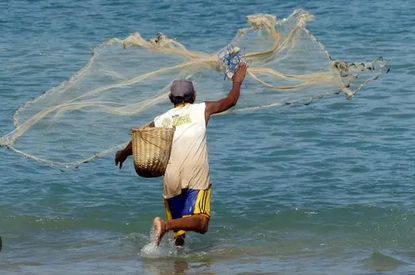
support@yorubalibrary.com
+2348073529208, 07038599574

Fishing is an integral part of Yoruba culture, with techniques passed down through generations. The Yoruba people, primarily located in the southwestern region of Nigeria, have developed unique and effective fishing methods that reflect their deep connection to nature and the aquatic environment.
The Role of Fishing in Yoruba Culture
Fishing is not just a means of sustenance for the Yoruba; it is a significant cultural activity. It provides food, serves as a source of income, and is an essential aspect of social life. Fishing practices are often accompanied by various cultural rites and ceremonies, emphasizing the community's respect for the water bodies and the life they support.
Traditional Fishing Tools and Equipment
Yoruba traditional fishing techniques rely on a variety of tools and equipment, many of which are handmade using locally sourced materials. Key tools include:
• Nets (Awon): Made from locally sourced fibers, these nets come in different sizes and are designed for specific types of fish.
• Fish Traps (Igere): Constructed from bamboo and other sturdy materials, these traps are strategically placed in the water to catch fish.
• Spears (Oko): Used for spearfishing, this method requires great skill and precision.
• Hooks and Lines (Iwo ati Okun): Crafted from strong, durable materials, these are used for catching larger fish in deeper waters.
Techniques and Methods
Several techniques are employed in Yoruba traditional fishing, each suited to different environments and fish species.
• Casting Nets: Fishermen throw circular nets into the water, allowing them to settle before pulling them back in, trapping fish inside.
• Trap Fishing: Fish traps are placed in strategic locations, often along riverbanks or in shallow waters, to capture fish as they swim by.
• Spearfishing: This technique involves using spears to catch fish, usually in shallow waters where visibility is better.
• Line Fishing: Hooks and lines are used in deeper waters to catch larger fish. This method often requires patience and skill.
Seasonal Fishing Practices
The Yoruba people also recognize the importance of seasons in fishing. The rainy and dry seasons significantly affect fish behavior and availability. During the rainy season, fish are more abundant, and fishing activities increase. Conversely, the dry season sees reduced fishing activities due to lower water levels and fish migration.
Conservation and Sustainable Practices
Yoruba traditional fishing techniques are inherently sustainable. Fishermen understand the importance of maintaining a balance in the ecosystem. They avoid overfishing and often engage in practices that ensure the continued availability of fish for future generations. These practices include:
• Rotational Fishing: Allowing certain areas to rest and regenerate by fishing in different locations.
• Size Limits: Releasing smaller fish back into the water to allow them to grow and reproduce.
• Closed Seasons: Observing periods during which fishing is prohibited to allow fish populations to recover.
Cultural Significance of Fishing Festivals
Fishing festivals are an essential part of Yoruba culture, celebrating the harvest and honoring the deities associated with water and fishing. These festivals include music, dance, and communal feasting, reinforcing the social bonds within the community. They also serve as a platform for passing down fishing knowledge and techniques to younger generations.
Conclusion
Yoruba traditional fishing techniques are a testament to the community's ingenuity and deep respect for nature. These methods, honed over centuries, not only provide sustenance but also preserve the cultural heritage of the Yoruba people. By understanding and appreciating these practices, we can learn valuable lessons about sustainable living and the importance of maintaining a harmonious relationship with our environment.

Learn about the Yoruba concept of Ìwà Pẹ̀lẹ́ (good…

Learn special praises for Divine Being and Creator…